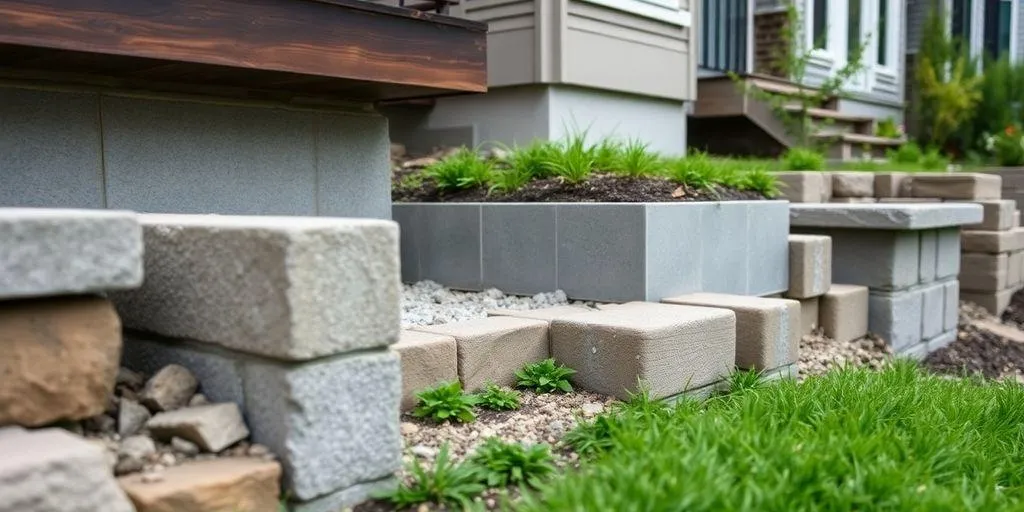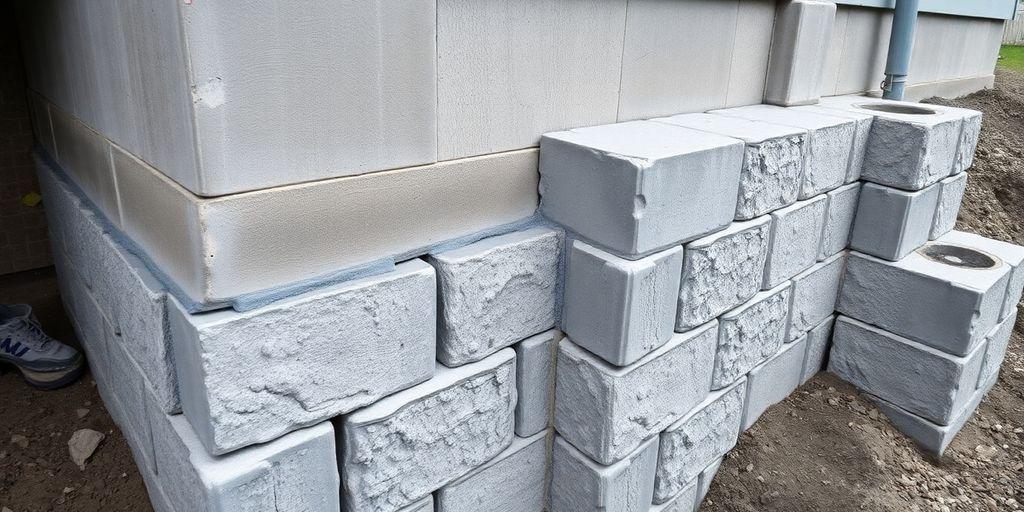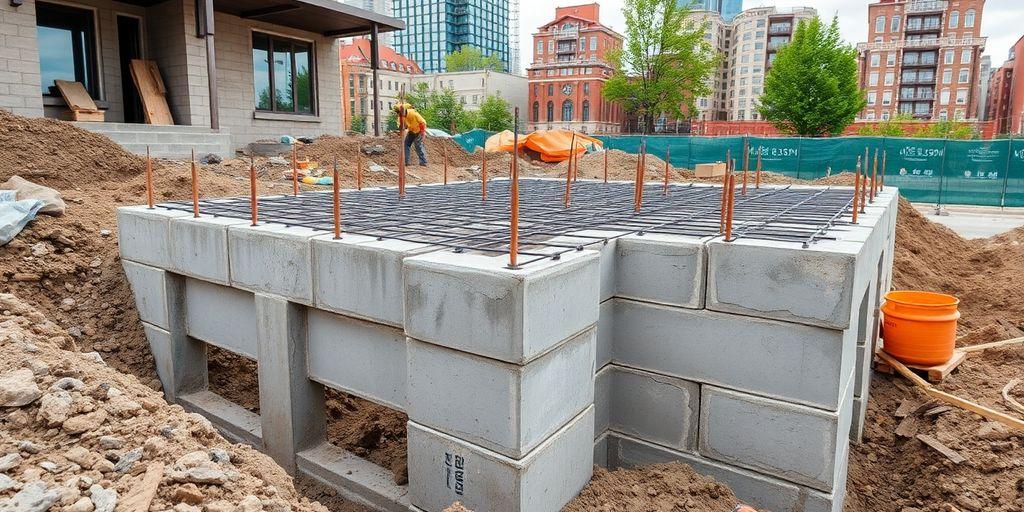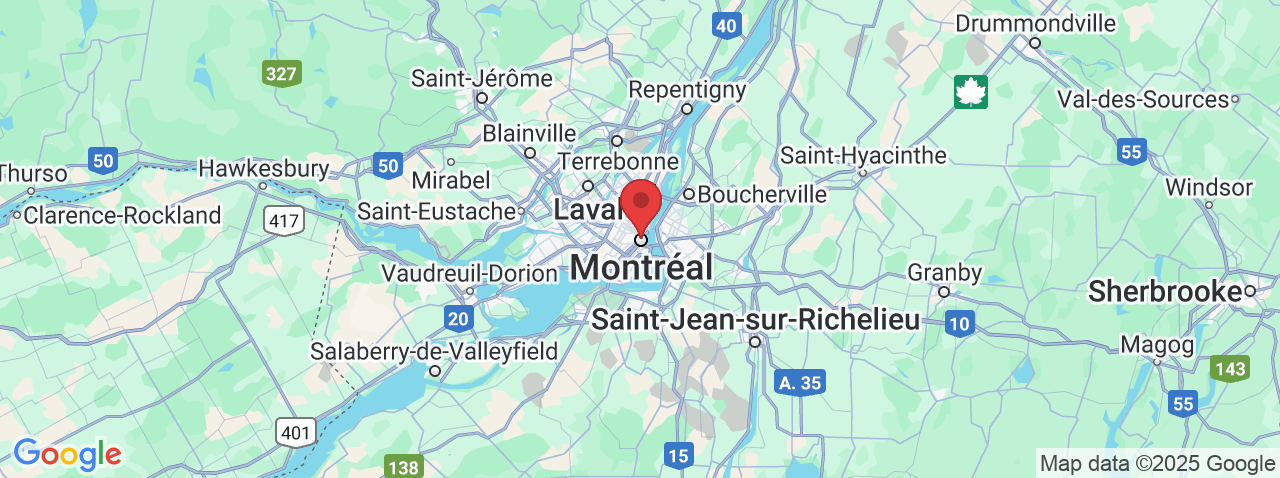Concrete Montréal
Understanding Residential Concrete Foundation Options in Montreal: A Comprehensive Guide
Explore Residential Concrete Foundation options in Montreal for durable home construction.
If you're living in Montreal and thinking about building a home, one of the first things to figure out is the foundation. It's not just about holding up your house; it's about dealing with the local weather, soil, and even the slope of your land. There's a bunch of different types of concrete foundations you can go for, and each has its own pros and cons. From dealing with cracks to making sure water doesn't mess things up, there's a lot to consider. Let's break it down so you can make the best choice for your home.
Key Takeaways
. Different foundation types suit different needs, from simple slabs to full basements.
. Local climate and soil conditions in Montreal greatly influence foundation decisions.
. Proper drainage and moisture control are essential to prevent foundation issues.
Types of Residential Concrete Foundations in Montreal
When it comes to building a home in Montreal, choosing the right type of concrete foundation is a big deal. The foundation is the backbone of any structure, supporting everything above it. Let's dive into the various types of foundations you might consider if you're building or renovating a home in this city.
Poured Concrete Slab Foundations
Poured concrete slab foundations are quite popular in areas where the ground doesn't freeze too deeply. They consist of a single layer of concrete, usually several inches thick, poured directly onto the ground. This type of foundation is straightforward and cost-effective, making it a go-to choice for many homeowners. However, in Montreal, where frost can penetrate deep into the soil, additional insulation might be necessary to prevent cracking.
Crawl Space Foundations
Crawl space foundations elevate the home slightly off the ground, creating a small space between the soil and the bottom of the house. This setup is handy for keeping the home dry and providing easy access to plumbing and electrical systems. In Montreal, crawl spaces are often well-insulated to combat the cold winters, ensuring pipes don’t freeze and burst.
Basement Foundations
Basement foundations are a common choice in Montreal, offering extra living space and storage. These foundations are built below ground level and can be finished to provide additional rooms. Given Montreal's climate, waterproofing is crucial to prevent moisture issues. A well-constructed basement foundation can add significant value to a home.
Insulated Concrete Forms (ICF)
Insulated Concrete Forms (ICF) are a modern approach that combines insulation and concrete into one system. These foundations are known for their energy efficiency and strength. The insulation helps keep homes warm during Montreal’s harsh winters and cool in the summer. ICF foundations are gaining popularity due to their durability and the energy savings they offer over time.
In Montreal, selecting the right foundation involves considering both the climate and the specific needs of the home. Each type of foundation has its unique benefits and potential drawbacks, making it essential to weigh your options carefully.
Factors Influencing Foundation Choice in Montreal

Impact of Local Climate on Foundation
Montreal's climate is known for its harsh winters and humid summers, which can significantly affect the choice of foundation for a home. The freeze-thaw cycles in winter can lead to soil expansion and contraction, impacting the stability of the foundation. Therefore, it's crucial to select a foundation type that can withstand these temperature fluctuations. For instance, deeper foundations like basements are often preferred as they are less susceptible to frost heave compared to shallow ones like slab-on-grade.
Soil Conditions and Foundation Stability
The type of soil on your property plays a huge role in determining the right foundation. Montreal's soil can vary from clay to sandy, each having different bearing capacities and drainage properties. Clay soils, for example, can expand when wet and contract when dry, posing challenges for foundation stability. Conducting a soil test before construction helps in understanding these characteristics and choosing a foundation that offers the best support.
Moisture Management and Drainage Solutions
Managing moisture is vital for the longevity of a foundation. Excessive moisture can lead to foundation cracks and other structural issues. In Montreal, where rain and snow are common, implementing effective drainage solutions is essential. This might include installing French drains, sump pumps, or ensuring proper grading away from the foundation to prevent water accumulation.
Topography and Foundation Design
The natural slope and layout of the land can dictate the type of foundation best suited for a property. For instance, homes on sloped lots might benefit from walk-out basements, which can take advantage of the natural terrain. Understanding the topography helps in designing a foundation that not only supports the structure but also complements the landscape, enhancing both functionality and aesthetics.
Common Foundation Problems and Solutions in Montreal

Identifying Foundation Cracks and Their Causes
Cracks in the foundation are often the first sign of trouble. They can appear for various reasons, ranging from natural settling to more serious structural issues. Recognizing the type of crack is crucial for determining the appropriate action. Here are common types:
. Vertical Cracks: Typically due to settling and are less concerning.
. Horizontal Cracks: These can indicate serious pressure from the soil and need immediate attention.
. Diagonal Cracks: Often caused by uneven settling or shifting soil.
Understanding the cause helps in deciding whether a simple repair will suffice or if more extensive work is needed.
Temporary vs. Permanent Repair Solutions
When it comes to fixing foundation issues, we often face the dilemma of choosing between temporary and permanent solutions. Temporary fixes, like patching up cracks or using sealants, can be quick and cheap, but they might not address the root of the problem. Permanent solutions, on the other hand, involve more extensive work such as underpinning or installing drainage systems.
Sometimes, a temporary fix is all we need to buy time while planning for a more permanent solution. It’s all about balancing immediate needs against long-term stability.
Foundation Stabilization Techniques
Stabilizing a foundation often involves methods like underpinning or using piers. These techniques help to reinforce and support the structure, especially if the soil has shifted or settled unevenly. Here's a quick look at some methods:
1. Underpinning: Extending the foundation to rest on more stable soil.
2. Helical Piers: Screwing steel piers into the ground to stabilize shifting foundations.
3. Slab Jacking: Pumping a mixture under the slab to lift and stabilize it.
Choosing the right technique depends on the specific issue and the type of soil under the house.
Addressing Drainage and Moisture Issues
Water is a foundation's worst enemy. Poor drainage can lead to water pooling around the foundation, causing it to weaken over time. Here are some solutions:
. Install Gutters and Downspouts: Direct water away from the foundation.
. French Drains: These can help redirect groundwater away from the home.
. Waterproofing: Applying sealants to the foundation walls can prevent moisture infiltration.
Properly managing moisture is essential for maintaining the health of your foundation. Regular inspections and maintenance can prevent small issues from becoming major problems.
Advanced Techniques for Foundation Repair in Montreal

Epoxy Injection for Crack Repair
When it comes to fixing cracks in concrete foundations, epoxy injection is a go-to method. This technique involves injecting a two-part epoxy resin into the cracks, which not only seals them but also restores the structural integrity of the concrete. It's like giving your foundation a new lease on life. However, it's important to remember that epoxy won't address the root cause of the cracks, such as soil movement or poor drainage.
Underpinning and Structural Reinforcement
Underpinning is essential when a foundation needs extra support. This process involves extending the foundation depth or breadth so it can rest on more stable soil or distribute the load more effectively. We might use methods like mass concrete underpinning or beam and base underpinning. It's a detailed process but ensures long-term stability.
Waterproofing and Drainage Enhancements
Water is a foundation's worst enemy, especially in Montreal's climate. Waterproofing solutions, such as installing membranes and improving drainage systems, are critical. We often recommend French drains or sump pumps to manage water effectively. These solutions help prevent water from seeping into the foundation, reducing the risk of cracks and other water-related damage.
Use of Composite Materials for Strengthening
In recent years, composite materials have become popular in foundation repair. Materials like carbon fiber or fiberglass are used to reinforce existing structures. They are lightweight yet incredibly strong, making them ideal for strengthening foundations without adding significant weight.
Composite materials
offer a modern solution to age-old problems, providing durability and flexibility in repairs.
In Montreal, where weather and soil conditions can be unpredictable, these advanced techniques are crucial for maintaining the integrity and safety of residential foundations. By employing these methods, we can ensure that homes remain stable and secure for years to come.
